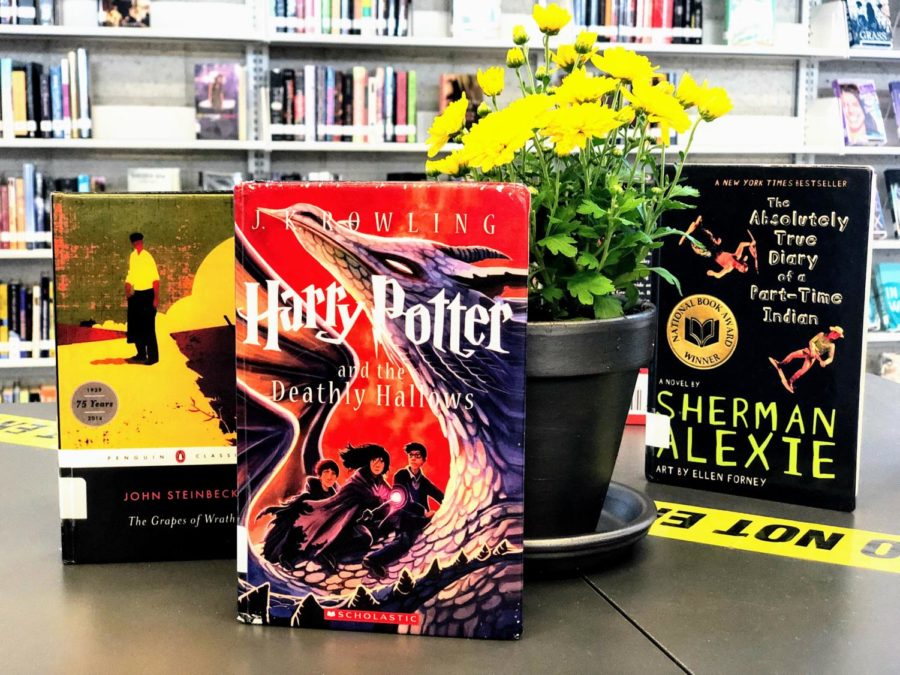Lifting the Censor Bar on Knowledge: Banned Books Week Comes to the Commons
Some of the most popular novels in the United States have been banned or censored for their controversial ideas. A high number of the novels read in Portola High English courses have been censored or banned at some time.
Librarians, avid bookworms and casual readers alike celebrated Banned Books week from Sept. 22-28. The annual campaign, promoted by the American Library Association (ALA), began in 1982 and celebrates the freedom to read and the value of open access to information, according to the ALA.
The Learning Commons commemorated the week by setting a display of the most popular banned or censored books in the United States, the tables holding the books decorated with yellow police tape to symbolize the censorship or restrainment of ideas and information.
“This week makes you aware that you have the right to read what you want to read. Nobody has the right to restrict access to what you read, other than maybe your parents,” library and media specialist Pam Quiros said.
Originally started as a response to the surge in censored books in schools, bookstores and libraries, the week recognizes novels that are considered controversial, many of which have been read by Portola High students in lessons, or are simply in popular culture, such as “Harry Potter,” “To Kill a Mockingbird” and “The Great Gatsby.”
“[People ban books because] it’s stuff that they don’t want their children or other people to be exposed to, and then obviously they don’t want to pass it down to future generations,” senior Allison Shi said. “But I think that awareness and openness to new ideas is really valuable for children to learn.”
While all Portola High students have been exposed to a banned book at least at one point in their high school careers, the week still emphasizes bringing awareness to the hundreds of books under censorship, over 483 in just 2018, according to the ALA.
In one recent instance, a high school in Nashville banned the “Harry Potter” series because of the books’ depiction of “actual curses and spells” within the plot, according to USA Today. Situations like this are not uncommon, and are often met with challenges. In this particular instance, the ban faced backlash from some parents and students.
“Without calling attention to these often quiet attempts to remove a book from a library collection, these efforts could escalate into increased demands that a book should not be taught in school or even available due to any objectionable topics. And that is dangerous,” librarian Rebecca Slocam said in an article published by the ALA. “So how can parents protect their children from material they consider inappropriate?…You can protect them by arming them with information.”
Your donation will support the student journalists of Portola High School. Your contribution will allow us to purchase equipment and cover our annual website hosting costs.

Maya Sabbaghian is one of two 2019-2020 Managing Editors. A staff member since 2016, Maya has previously served as a 2017-2018 Editor-in-Chief, and as...




